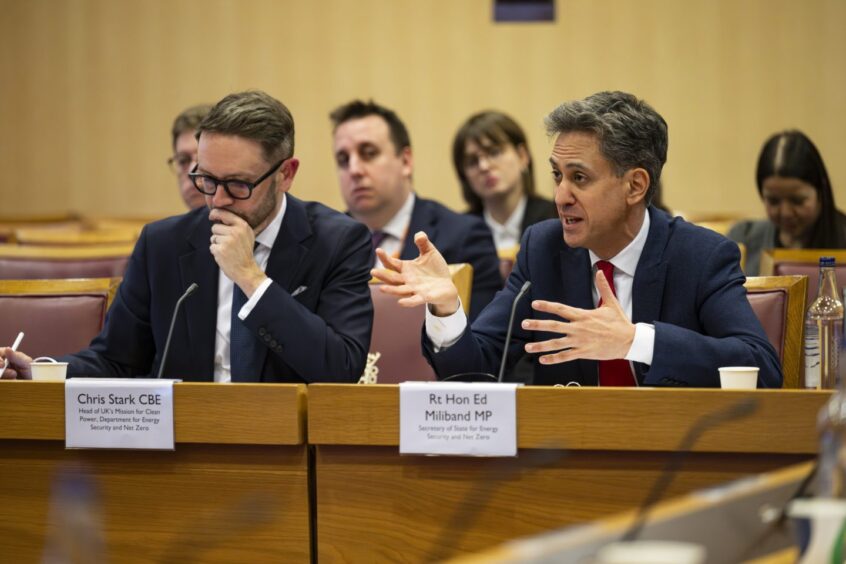
It was bad luck for Ed Miliband that his appearance before the House of Commons Environmental Audit Committee fell on the same day that a report by Cornwall Insight predicted the UK would fall 32GW short of his ‘clean power by 2030’ target.
I don’t really know how Cornwall Insight arrive at their conclusions with such precision in a world of massive imponderables. Yet their crystal ball tells them we will be 16GW down on solar, 10GW behind schedule on onshore wind and a relatively modest 6GW short on offshore wind.
Forgive my scepticism, but I would place more faith in sticking a pin in a race card. We can be confident Cornwall Insight’s analysts will have moved on by 2030 and, even if they haven’t, nobody will take the trouble to recall their soothsaying from five years previously. In the meantime, their function is to generate headlines.
Actually, their research told us little that we didn’t know already. Cornwall Insight discovered that “grid connection delays, supply chain constraints and uncertainty surrounding electricity market reforms” are among the challenges holding back the 2030 ambition. Well, who would have guessed?
I fear Mr Miliband is going to have a lot more such days if he stays in the job. While he insists that all is on course for “challenging but attainable” targets, a variety of soothsayers will say otherwise. Only as 2030 draws nearer will it be possible to adjudicate on who has been right.
The problem is that common sense risks being subordinated to this never-ending argument about meeting targets. At this point, it is essential to make a semantic distinction. Objectives and targets are not synonymous. If Mr Miliband is, even now, capable of taking that distinction on board, he could become a lot more credible.
Pretty much everyone, even in the age of Trump, can agree about the objective – which is to transition as quickly and efficiently as practical to a low-carbon energy mix. It is when the words “by 2030” are added that “target” takes over from “objective” and the whole policy acquires an aura of messianic zeal – intolerant of non-believers.
This is a problem that Mr Miliband helped to create for himself by starting with a conclusion from which to work backwards. If we were going to reach his targets, then there were not only a lot of things we must do (agreed) but also sacrificial lambs that could safely be dispensed with. Hence, the premature prejudice against North Sea developments.
It is when the words “by 2030” are added that “target” takes over from “objective” and the whole policy acquires an aura of messianic zeal – intolerant of non-believers.
The drive for clean power need not have been tied so rigidly to a target date which may, or more probably may not, be attainable. And it certainly did not need to have been pitted against domestic production of an existing energy source which, come what may, we are going to require for several decades. It has been an irrational conflict all along.
There is still time to defuse it. Public opinion is not hostile to renewables but sees no sense, as long as we need oil and gas, that it should be imported but not produced domestically. A poll this month found over 70% favouring domestic production with the same level of support running across the political spectrum.
The same poll found 53% support for the “clean power” objective, which suggests that there is no need for a culture war of the kind that is being whipped up in America. It is perfectly possible to be “pro clean power” while seeing no sense in relying on imports for as long as we need fossil fuels.
As quickly as possible, government needs to make peace with the North Sea and recognise the importance of its role in delivering a transition that is not going to reach a dramatic conclusion with the raising of a green flag in 2030. Rather, it is a process rather than an event and the pace will be determined by practicalities more than targets.
If Mr Miliband could get that monkey off his back, there could be more focus on these very real challenges that Cornwall Insight was right about. It would help to have a coherent plan that could unite most of the country around the objective of a just transition that respects the three pillars of energy policy: security of supply, affordability and the drive for net zero.
The Energy Secretary told another committee hearing last month that the offshore industry and UK government now share “common ground” on the future role of oil and gas, and that there is soon to be a consultation on the government’s North Sea licensing policy.
If that becomes the opportunity for a pragmatic reappraisal by both UK and Scottish governments, it would create a very different environment of trust within which the clean power drive could continue without being caught up in the potential “culture war’ that Mr Miliband has said he wants to avoid.
There is no shame in recognising that the high mindedness of opposition may require adjustment in light of hard experience in government.
In the polite language of Cornwall Insight: “The government’s push towards a fully decarbonised grid represents an opportunity to cement the UK’s position as a global leader in renewable energy. However, while setting ambitious goals for renewables is crucial, some argue that pushing too quickly could have unintended consequences, diverting resources to short-term solutions at the expense of longer-term energy security and sustainability”.
Recommended for you
